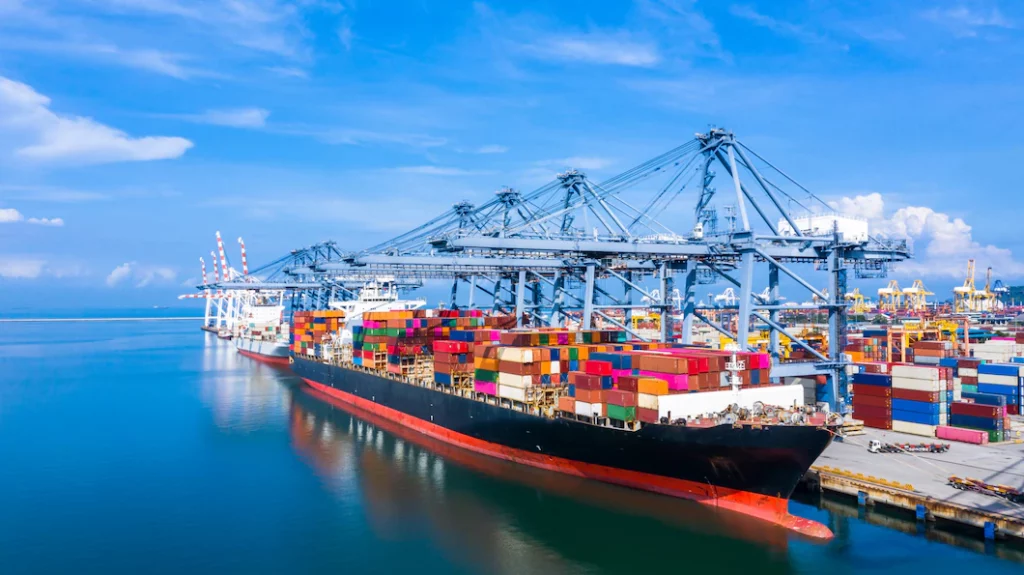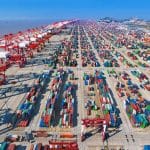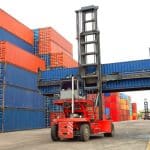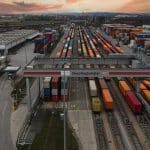LA-LB CARGO FLOW IMPROVES AMID DIVERSIONS LINKED TO PROLONGED LABOUR TALKS
Reduced backlogs in Southern California due primarily to the diversion of cargo to the East and Gulf coasts have shifted the congestion problems to ports in those regions.
MOBILE BREAKBULK DOCKWORKERS AVOID STRIKE, HEAD TO MEDIATION WITH EMPLOYER
Union workers at Mobile’s breakbulk and general cargo docks are the only ones working for a maritime employer without a ratified contract during the ILA’s current 2018-2024 master contract term.
DROP IN US INBOUND CONTAINER VOLUMES ACCELERATES
According to the latest McCown report, inbound volumes dropped by 5.5% in September, a level not seen since the early stages of the pandemic and greater than the 0.3% seen in July and 0.6% in August. “West Coast ports drove that overall weakness with a 17.0% decrease overall that was among the biggest drops in years,” said the report. That decrease added to an 11.5% decline in August and 5.1% in July. While port congestion figures continue to improve, the eastward shift for inbound US cargo remained evident. A 6.6% increase in volume for East and Gulf Coast ports was led by New York and Houston. The report said concern over West Coast labour unrest could have supported the eastward shift. Los Angeles was the weakest performing port in September, down by 26.3% on-year with Houston, Charleston and New York the strongest. “With signs of slowing volume, the final quarter of 2022 is likely to show less inbound loads than the year earlier quarter,” While this report did not touch on the underlying causes of slowing container volumes, other market reports have pointed to inflation in developed economies and low consumer confidence as negative factors for container volumes. For the US in particular, multiple reports have noted high retailer inventories as further reason for volumes to soften.
SICK DAY DISPUTE REVIVES RISK OF A MAJOR U.S. RAILWAY STRIKE
A disagreement over sick leave is threatening to disrupt a bargain between America’s major rail lines and railroad unions, derailing hopes of a long-sought contract agreement. Last week, members of the Brotherhood of Maintenance of Way Employees Division (BMWED) voted down the labour deal that carriers and unions negotiated in an all-night bargaining session last month. The vote means that the union’s track repair workers could go out on strike as early as November 19. The White House-brokered deal had raised hopes that the unions and rail carriers had resolved a key sticking point – a points-based employee attendance policy that had the effect of preventing unpaid medical leave, according to the union coalition. The hard-won agreement offered union members access to unpaid time off for “routine and preventive medical care, as well as exemptions from attendance policies for hospitalizations and surgical procedures.” The White House has legal authority to order unions and carriers to go back to work while negotiations proceed. However, even a brief interruption could have serious repercussions for a logistics system that is still recovering from the surge of post-COVID cargo congestion. The rail carriers have signalled that they would likely begin shutting down service days ahead of any planned strike and would prioritize hazmat cargo movements, in line with the contingency plan they implemented in September. That would back up lower-priority cargoes like containerized import goods at the nation’s top seaports, which are heavily reliant on intermodal rail to move freight to inland markets.
PORT PANAMA CITY USA SETS ALL-TIME HIGH CARGO RECORDS SEES RECORD BREAKING NINE PERCENT REVENUE INCREASE
Port Panama City continues to see strong growth in cargo and revenue, and for the just-completed fiscal year, set a record high of 2.03 million tons of cargo handled at this regional seaport. That’s a four percent year-over-year growth rate, surpassing the 1.95 million tons of cargo handled in 2021. Port Panama City also set a revenue record of $19.04 million for FY 2022 – which is a nine percent increase over 2021. Cargo handled by Port Panama City includes metals, containers, forest products, stone, wood pellets, molasses and steel.
FOR THE FIRST TIME IN FOUR YEARS THERE’S NO U.S. CRUDE GOING TO FRANCE
For the first time in four years, there’s no US crude getting exported to France as a workers strike in the European country upends normal trade flows. French workers are protesting for higher wages amid soaring inflation, and that’s snarled operations at key oil refineries. The chaos in the nation’s energy industry means that companies including Exxon Mobil Corp. and Total Energies SE have been forced to curtail or suspend their local operations. US oil producers normally see steady demand from French plants that take crude and process it into fuels like gasoline. So far this month, there’s not been any American crude sailing to French ports. If this keeps up, it would be the first time since September 2018 that no US oil was sent to France.





